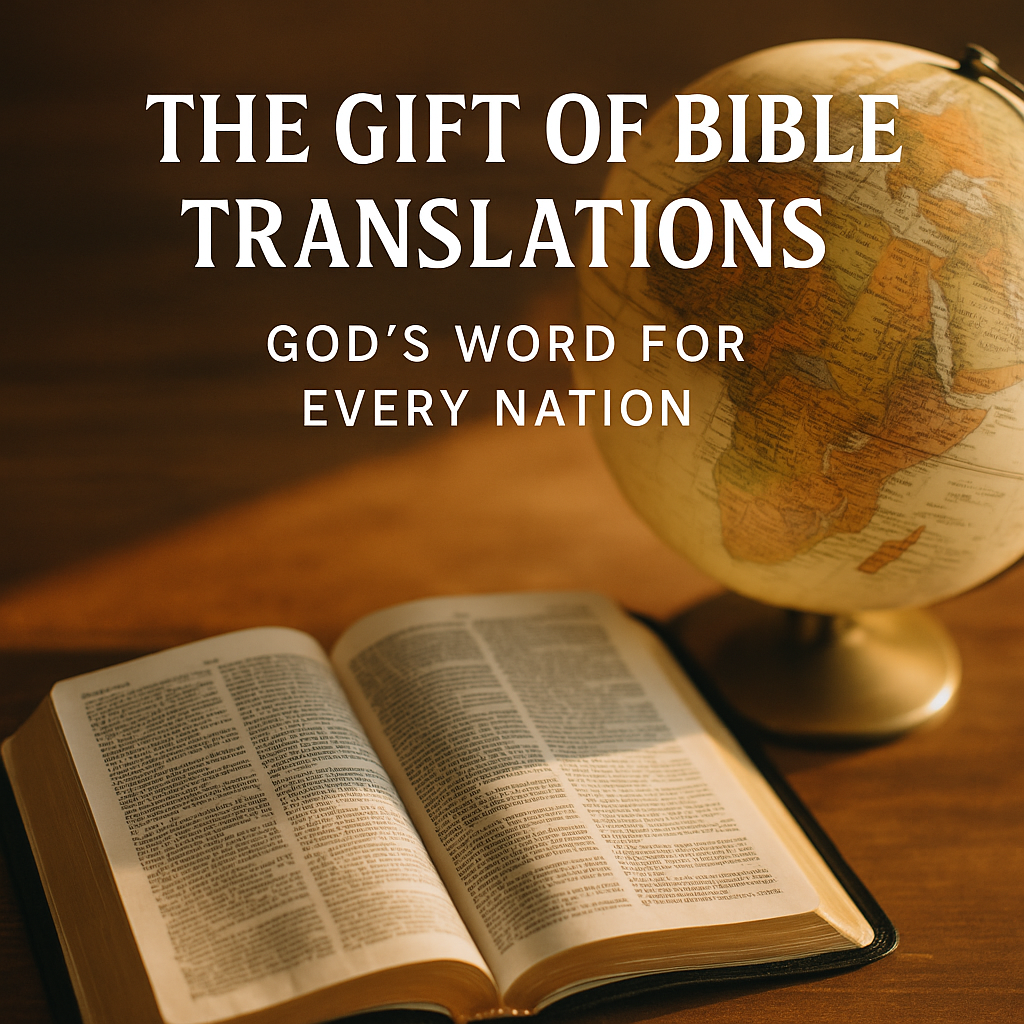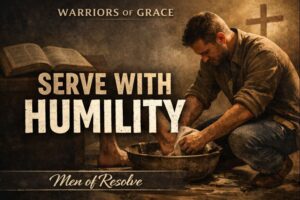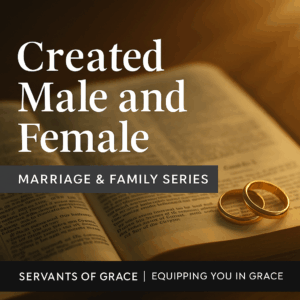⏱️ Estimated Reading Time: 6 min read
The Gift of Bible Translations
Why Translations Exist
The Bible was originally written in Hebrew and Aramaic in the Old Testament and Greek in the New Testament. Most people today do not read those languages, so translations are necessary to make God’s Word accessible. From the earliest centuries, believers worked to put Scripture into the language of the people. From the Latin Vulgate to the many English versions we use today, translation has helped the truth of Scripture go forward.
Blessing and Challenge
The number of English translations is both a blessing and a problem. It is a blessing, since the Word of God is available in accurate and accessible forms for anyone who needs it. It is a problem, since differences between translations can create confusion in studies and classes, and can become a point of division within the church body. Wise use and patient teaching help turn the blessing toward unity and growth.
Translation Philosophies
Modern translations differ mainly in approach. Each method can serve the church when used wisely.
- Word for word (formal equivalence) aims to stay close to the original wording. Examples include NASB, ESV, KJV, NKJV, NRSV, and RSV.
- Thought for thought (dynamic or functional equivalence) seeks to express the meaning in clear, contemporary language. While this can improve readability, it risks introducing interpretation rather than strict translation.
- Paraphrase restates ideas freely for readability. Paraphrases can offer a fresh angle, yet should not be used as a primary Bible translation for study or teaching.
Functional and essential equivalence methods move away from formal translation and therefore are closer to paraphrase. Projects that use these methods risk obscuring the original meaning. Formal equivalence remains the best approach for accuracy, especially for readers who do not know the biblical languages.
Accuracy and Readability
As Christians who affirm the authority of Scripture, we want to read translations that are faithful to the text God inspired. Literal translations preserve the structure and intent of the original words. Thought-for-thought translations may read more smoothly, but they sometimes insert interpretation. A wise reader values accuracy over convenience, remembering that clarity in the text ultimately comes from careful study illuminated by the Holy Spirit.
How to Compare Translations
It is wise to keep two or three major translations on hand for comparison. For example, the KJV, NKJV, ESV, and NASB provide a strong balance of precision and readability. When a verse seems unclear, compare it side by side with another formal translation. Build a list of verses you know well and use those to evaluate any translation you are unsure of. Verses that declare the deity of Christ—John 1:1, 1:14, 8:58, 10:30, and Titus 2:13—make useful tests. Whatever the edition, remember that God’s Word is truth and will accomplish His purposes (Isaiah 55:11; 2 Timothy 3:16–17; Hebrews 4:12).
Examples that Show the Challenge
Genesis 1:1–2
Smoother English rendering: “In the beginning God created the heavens and the earth. Now the earth was formless and empty, darkness was over the surface of the deep, and the Spirit of God was hovering over the waters.”
More literal word order from Hebrew: “The earth and the heavens God created in the beginning, and the Spirit over the deep, the face of the waters, and darkness, and void, formless was the earth.”
Romans 8:28
Smoother English rendering: “And we know that in all things God works for the good of those who love him, who have been called according to his purpose.”
More literal word order from Greek: “We know that to those loving God all things work together God for good, to those called according to purpose.”
These examples show why strict word order is not always the best way to communicate meaning in English. Faithful translators seek accuracy that can still be read and understood.
Translation Teams and Trust
Committee-based translations guard accuracy and reduce the influence of a single interpreter. For example, the English Standard Version was produced by an international team of more than one hundred scholars from multiple denominations. This collaborative process ensures transparency, accountability, and careful theological review, resulting in trustworthy translations that serve the church worldwide.
Which Translations Are Often Recommended
There are many English Bible translations available today, yet not all hold equal value for accuracy and theological precision. For those who desire to read, study, and teach Scripture with confidence, formal equivalence translations are the most trustworthy because they seek to remain as close as possible to the original Hebrew, Aramaic, and Greek text.
- New American Standard Bible (NASB) — One of the most literal English translations, known for its careful attention to grammar, word choice, and fidelity to the original manuscripts.
- English Standard Version (ESV) — Balances accuracy and readability while maintaining a high view of Scripture and linguistic faithfulness within the historic Tyndale and King James tradition.
- King James Version (KJV) — Revered for its literary beauty and historical importance, based on a long-standing tradition of careful translation from the original languages.
- New King James Version (NKJV) — Retains the precision and reverence of the KJV while updating archaic language for clarity and comprehension without compromising doctrinal faithfulness.
Other versions such as the NIV, CSB, and NLT employ a more dynamic or thought-for-thought philosophy, which can make them easier to read but often at the expense of textual precision and theological depth. For those seeking a translation that most accurately reflects the inspired text, the NASB, ESV, KJV, and NKJV are recommended as reliable and faithful choices.
The Biblical Basis for Translation
God intends His Word to be heard in the languages of the nations. At Pentecost, the Spirit enabled people to hear the gospel in their own tongues (Acts 2:6–11). This shows that God wants His Word to be understood by every tribe, tongue, and nation.
Asking the Better Question
“What is the single most accurate translation?” may not be the right question. A better question is, “How can I gain the most accurate understanding of what the original text means?” That goal invites careful reading, comparison of faithful translations, and humble study. When we seek understanding, we are freed from the pressure to find one perfect version and instead learn to appreciate how the Lord uses different faithful translations to bless His people.
Application
Choose a faithful translation you can understand and read consistently. Use more than one translation when helpful. The most important question is not which Bible you own, but whether you are reading, studying, and obeying it. The Lord has preserved His Word, and He uses it to build His people.
For more from Contending for the Word Q&A please visit our page here at Servants of Grace or at our YouTube.



